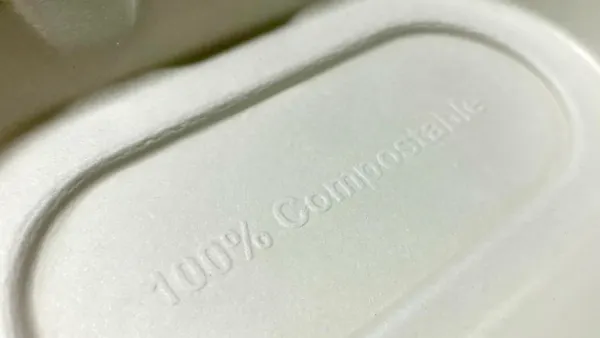Dive Brief:
- Stifel downgraded the industry's four biggest publicly-traded companies from "buy" to "hold" on April 11, as reported by Street Insider, sending stock prices down and signaling that the extended period of financial headwinds for recycling is not yet over.
- While financial analyst Michael E. Hoffman noted "solid waste fundamentals are good" for both Waste Management and Republic Services, he highlighted how both saw notable financial hits to EBITDA and free cash flow in 2018. The company's respective revenue mixes currently include upward of 10% and 7% of recycling commodity sales — more than their closest competitors.
- As for Waste Connections, Hoffman wrote that he wouldn't have downgraded them "if we thought the market would not sweep all of solid waste up in the recycling discussion." Beyond recycling, various regional weather effects that have increased landfill leachate expenses and disrupted business were cited as a compounding factor for Advanced Disposal Services.
Dive Insight:
The ups and downs of stock prices aren't always a cause for interest outside the financial community, but the blanket downgrade of all four companies simultaneously is reminiscent of a similar move by Stifel in the fall of 2017. Back then, the financial realities of China's scrap import restriction announcement were just beginning to set in after companies had spent months downplaying the effects. Now, more than a year and a half after that fateful June 2017 news, the strain still hasn't dissipated.
Casella Waste Systems wasn't included in this latest round because it had already been moved to "hold" by Stifel in February. The company has among the highest recycling revenue mixes of the group, but it's also in a slightly different position due to its unique sustainability/recycling adjustment (SRA) fee that can more quickly reflect commodity shifts.
This situation was previewed in the latest round of Q4 earnings calls, when each company disclosed how much they'd felt the effects during FY18. Reported annual recycling headwinds were $90 million for Waste Management and $145 million for Republic. Waste Connections and Advanced also reported their own multimillion dollar effects. Still, Waste Management executives projected its recycling business could in fact be a minor tailwind for 2019. Others had a variety of comments ranging from upbeat to neutral about their prospects.
Ongoing pressures on fiber grades — including bottom-of-the-barrel values for mixed paper in recent months — are the key reason behind this latest sign of financial tension. How long it will last (some say a couple of years, other five years) is an open question. Spurred in part by lucrative opportunities to buy this material at lower rates, a wave of paper mill investment underway in North America will begin improving the market within the next year-plus.
In the meantime, there has been recent resurgence of the narrative that companies owning landfills are disincentivized to invest in recycling. Waste Management and Republic have both been vocal in countering that assumption. Whether this latest stock shift registers as an issue for analysts in the upcoming Q1 earnings calls that begin on April 25 remains to be seen. If nothing else, based on the recent trend of rising returns and positive pricing increases, all the vertically-integrated agglomerates can be expected to report that their solid waste businesses are still doing just fine.









